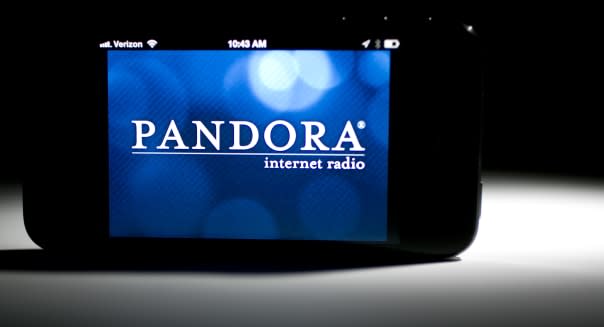Pandora Defeats ASCAP, Music Publishers in Royalties Appeal

By Jonathan Stempel
NEW YORK -- A federal appeals court in Manhattan rejected appeals by a music licensing group and music publishers that could have forced Internet radio service Pandora Media (P) to pay higher royalties and have access to fewer songs.
In a case closely watched in the music industry, the 2nd U.S. Circuit Court of Appeals rejected Wednesday an effort by the American Society of Composers, Authors and Publishers to increase the rate that Pandora must pay to license its music from 2013 to 2015.
It also said rules governing ASCAP licensing "unambiguously" barred music publishers from negotiating higher rates for their works with "new media" music users such as Pandora, even as ASCAP licensed the same works to other users.
%VIRTUAL-WSSCourseInline-963%Vivendi's Universal Music Publishing, Sony/ATV Music Publishing and EMI Music Publishing had withdrawn their new media licensing rights from ASCAP, while retaining membership in that group.
Wednesday's decision is a defeat for publishers and songwriters who believe growth in streaming music has resulted in unfairly low licensing rates.
The decision upheld rulings by U.S. District Judge Denise Cote in Manhattan federal court. Under a 1941 antitrust consent decree, ASCAP rate disputes are reviewed there.
Pandora is the most popular Internet radio service. The Oakland, California-based company estimated last month that it has more than 250 million users, of whom 79.2 million are "active," who listen to 1.77 billion hours of music each month.
ASCAP had no immediate comment. Universal wasn't immediately available for comment. Sony/ATV, which also administers the EMI catalog, had no immediate comment.
'Equal Treatment'
Kenneth Steinthal, a King & Spalding partner representing Pandora, said the decision helps ensure "equal treatment under the consent decree, including the right to perform all works by all publishers that are ASCAP members."
The 2nd Circuit said Cote didn't commit "clear error" by requiring Pandora to pay ASCAP a royalty rate of just 1.85 percent of revenue to use its songs from 2011 through 2015. ASCAP had proposed an escalating rate that peaked at 3 percent.
Meanwhile, the court said it couldn't "rewrite the decree" to let publishers selectively choose how their works are licensed.
"The licensing of works through ASCAP is offered to publishers on a take-it-or-leave-it basis," the court said.
ASCAP said it has about 525,000 members, and represents music from artists like Leonard Bernstein, Beyonce, Duke Ellington, George Gershwin, Alan Jackson, Jay-Z and Katy Perry.
The cases are American Society of Composers, Authors and Publishers, et al., v. Pandora Media Inc., 2nd U.S. Circuit Court of Appeals, Nos. 14-1158, 14-1161, 14-1246.
